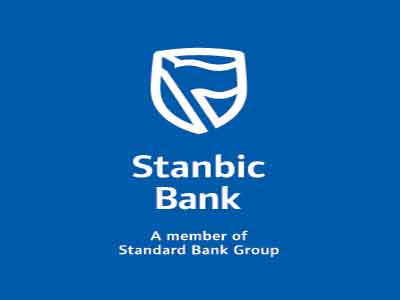 STANBIC IBTC has expressed optimism over the efforts by the Federal Government to structurally transform the Nigerian economy, particularly in the agriculture sector, saying it would yield immediate benefit if the development model and value chain financing are adopted for sector.
STANBIC IBTC has expressed optimism over the efforts by the Federal Government to structurally transform the Nigerian economy, particularly in the agriculture sector, saying it would yield immediate benefit if the development model and value chain financing are adopted for sector.
The Head, Agriculture Finance, Stanbic IBTC Bank, Jerry Gushop, made this remark during his presentation at the 2015 AgrikExpo held in Lagos.
Gushop said the role of commercial banks in agriculture value chain finance is imperative, stating that agriculture represents an opportunity, with huge economic potential remaining largely untapped.
According to him, the value chain development and financing has almost become a magic formula for sustainable agricultural investments.
A value chain is a whole range of activities and services required to bring a product or service from idea or input stage to the market.
He said the value chain model becomes necessary because it can quickly plug the production and financing gap in the industry, while unlocking its potential by targeting the whole range of activities in the sector.
He also identified the twin problems of low agriculture productivity and paucity of required affordable financing that continue to limit to 22 per cent the sector’s contribution to the country’s GDP.
“It is because of the interdependence and linkages between the activities that a clear understanding of the chain market for the final product and the various actors of the chain is important, not only for financing or investment decisions, but for developing the entire chain.
“It helps identify linkages of the small players to the bigger economic system, so that in the end, even the small and marginalized participants also benefit. It also helps to identify where financing needs are, the different types of financing required and ways to improve access to financing, ” he stated.
However, there must be a synergy between the public and the private sectors to ensure success of the model. He assured that the bank has developed a robust financing model that captures the various actors in the value chain, including smallholder and commercial farmers.
“Our robust financing models hinge on a single overarching agric strategy of Business Bank/CIB alignment through two legs of execution to enable us capture and bank the value chain opportunities,” he said.
Gushop highlighted some of the targeted products and services by the bank which include: working capital facility for commodity processing and production; loans for acquisition of agriculture fixed assets and construction of warehouses and storage facilities; and technical assistance through agriculture extension support for improving productivity and product quality, among others.
He said Stanbic IBTC has a competitive agricultural advantage as a member of the Standard Bank Group and will continue to leverage the Group’s pedigree through the offering of tailor-made agricultural banking offerings to tap the myriads of bankable opportunities and prospects in the agriculture space in Nigeria.
Gushop expressed hope that the model will help correct the current situation whereby about 90 per cent of the agric output in the country is accounted for by smallholder farmers with less than two hectares under cropping.



